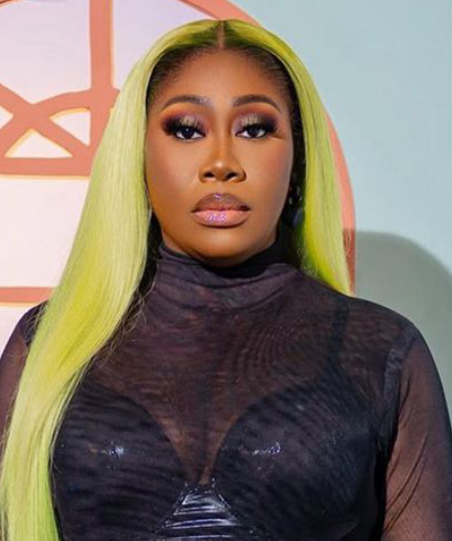
“Do You Love Yourself at All?” – OAP Gbemi Sparks Fierce Debate Over Women Having Multiple High-Risk Pregnancies
Popular media personality Gbemi Olateru-Olagbegi, known simply as Gbemi, has ignited a firestorm on social media with a piercing question directed at women who choose to get pregnant again after enduring severe complications during previous pregnancies. Her tweet, which reads, “The people who do it multiple times with all these
Popular media personality Gbemi Olateru-Olagbegi, known simply as Gbemi, has ignited a firestorm on social media with a piercing question directed at women who choose to get pregnant again after enduring severe complications during previous pregnancies. Her tweet, which reads, “The people who do it multiple times with all these issues, are you ok? I understand the ones who have no issues, but those of you who almost died the last time, why go again? Do you love yourself at all?” has divided the internet, with many praising her for raising a difficult but important concern, while others accuse her of insensitivity and failing to consider the nuances behind such personal choices.
It all began after a tweet by user @CyberOdance went viral. The tweet listed harrowing experiences some women have faced during pregnancy—ranging from hearing loss and psychosis to fractured ribs. The post, captioned, “Come abeg, what is the actual issue?” struck a nerve, particularly among women who had endured traumatic pregnancies. Gbemi, moved by the stories and perhaps stunned by the repeated nature of such suffering, responded with her now-controversial comment.
Her statement triggered a wave of reactions that cascaded across X (formerly Twitter), Instagram, and various online forums. On one side of the debate are people who agree with Gbemi’s sentiment. They argue that continuing to get pregnant despite life-threatening complications shows a disregard for personal well-being and raises ethical questions, especially when children are left without mothers due to maternal deaths. They see her words not as harsh but as a needed jolt in a society where women are often expected to endure suffering silently in the name of motherhood.
“Gbemi said what a lot of us have been thinking,” wrote one user. “If you almost died the last time, and you’re now going through it again, who are you trying to prove something to? What kind of pressure is this?”
Others echoed similar sentiments, pointing to the lack of prioritization of women’s health in many societies and the glorification of maternal suffering. “We act like women are disposable in these situations. If a man had a medical condition that flared up every time he tried to do something, he’d stop. But women? We call them strong for suffering and then encourage them to do it again,” another comment read.
However, just as many—if not more—have come to the defense of the women being questioned. Critics of Gbemi’s post argue that it oversimplifies a deeply complex and personal matter. Getting pregnant again after a traumatic experience is not always a straightforward decision. For many women, factors such as cultural expectations, spousal pressure, lack of access to adequate contraception, religion, family dynamics, and even personal dreams of motherhood play major roles in the decision to try again.
“There’s a lot Gbemi doesn’t understand here,” one user responded. “What if the woman is trying for a male child because her husband’s family will only accept sons? What if she doesn’t want her only child to grow up alone? What if she wasn’t even allowed to say no in the first place?”
Another woman shared, “I had eclampsia during my first pregnancy and I almost died. But I still had another child. Was it dangerous? Yes. But I weighed my options and took every precaution. And guess what? It was smooth. No one has the right to question my choice.”
Beyond the heated opinions, medical professionals have also weighed in, stressing the importance of personalized medical counsel over general societal pressure. According to obstetricians, while certain complications do put women at higher risk in future pregnancies, every case must be individually assessed. Blanket advice or criticism, they argue, does more harm than good. Some high-risk pregnancies can still result in healthy births under strict medical supervision.
A consultant obstetrician at a Lagos hospital, who asked to remain anonymous, commented, “The reality is that many Nigerian women don\'t even get to make these choices freely. Access to quality reproductive health care is poor. So we see women getting pregnant again after dangerous pregnancies not because they want to, but because they have no access to family planning, or their partner refuses it. So it\'s not always a matter of ‘loving yourself.’ It\'s more systemic than that.”
Meanwhile, feminist groups and advocates for maternal health have taken the opportunity to refocus the conversation on the need for better healthcare systems, more education on reproductive rights, and societal support for women who choose to stop at one child. They argue that women who decide against having more children due to previous trauma are often shamed, labeled selfish, or pressured by extended families and communities.
The social commentary has also raised another pertinent point—why the burden of childbearing and its consequences continues to be solely placed on women. Many argue that men should be included more in discussions about reproductive decisions, and that more attention should be paid to their role in ensuring the health and safety of their partners.
As the online debates rage on, Gbemi has not issued a follow-up statement or clarification. Whether she meant her tweet as a genuine call for women to prioritize their health or as an emotional reaction to the horrifying stories she read, her words have ignited a necessary conversation. The backlash and support alike show just how polarizing, emotional, and vital discussions around pregnancy and maternal health remain.
In a country where maternal mortality is still a grave issue and where women often navigate motherhood with limited support, Gbemi’s tweet is a reminder of the silent battles many endure. But it also reveals the urgent need for empathy, context, and support—not judgment—in navigating these personal terrains. Whether one agrees with her or not, the question she posed echoes far beyond Twitter: Do women truly have the freedom to make choices about their bodies, or are those choices already made for them by a society that demands sacrifice at all costs?
The real issue, it seems, is far more complex than one tweet can contain.
Share this post
Related Posts

BREAKING NEWS: US Court Jails Nigerian Man, Abiola Quadri, 11 Years for $1.3M COVID-19 Fraud in California and Nevada
In a ruling that adds yet another name to the growing list of Nigerians convicted...

“This whole situation has gotten dangerously out of hand” — 2Baba breaks silence, slams family over fallout involving Natasha Osawaru
Nigerian music icon 2Baba has finally broken his silence, issuing a powerful statement accusing certain...

Senate Drama Unfolds as Natasha Applauds Oby Ezekwesili in Heated Exchange Over Akpabio Petition
A heated verbal clash erupted in the Nigerian Senate, drawing widespread reactions after former Minister...